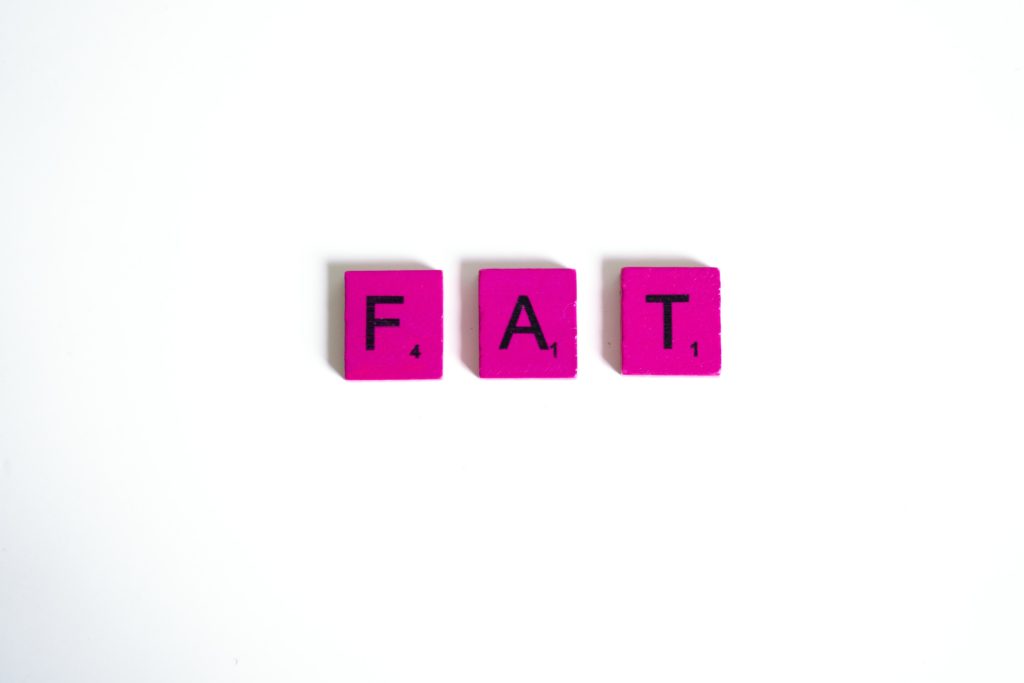Signs of Overtraining and How To Prevent It

Are you a fitness freak? Or are you training yourself for an event? Whatever it is you are doing, sometimes over-dedication to a goal can lead to overtraining. Yes. Overtraining is a real problem, and identifying the signs of overtraining is essential.
Overtraining occurs when a person goes for a workout without giving the body enough time between the sessions to recover. This may seem normal at first, but too much exercise can harm your health in the long run and also hinder your results.
Overtraining syndrome can negatively affect the performance, fitness levels and even cause injuries. Thus it is essential to identify the overtraining symptoms in a person. To help you with this we have put together all the information which will help you identify the signs of overtraining.
What is Overtraining?
To understand a problem first, we need to know what it is. In this case, the answer to what is overtraining in simple words is that it is a situation where a person workouts to an extent where it causes burnout.
Burnout or overtraining can have negative impacts on health if not treated in time. Some of the problems which it can cause in a person are:
- Weak joints
- Fractures due to weak joints
- Injuries
- Lower the performance
- Fatigue
- Pain
- inflammation
These are some of the negative results of overtraining, which can be seen in a person.
Now, when we know what is overtraining, let’s move on to overtraining symptoms to help you identify it.
Signs of Overtraining
There can be various symptoms of overtraining which can be seen in a person. These include:
Change in Eating Habits
When a person goes for weightlifting with an intense schedule, they may cut their calorie intake. This calorie cut can negatively impact their performance and health.
This cut on the food and calories intake, in turn, result in anaemia as the body regularly draws from the reserves. The low intake also results in depletion of the energy reserves and nutritional deficiencies in the body.
If a person continues this routine for long, then it may also result in serious health problems. It can impact endocrine, cardiovascular, and gastrointestinal health negatively. This can even lead to the development of the reproductive system and nervous system problems in some cases. Some common problems which you can see in women are irregular cycles and missing periods.
Strain, Pain, and Soreness
When a person pushes past their physical limits during high-intensity interval training(HIIT), it can lead to problems. Some of the problems which you will see are pain and muscle strain.
Overtraining or overstressing of the body can also cause injuries and soreness. Another common thing that a person might experience is the microtear in the muscles.
Overuse Injuries

Plantar fasciitis, shin splints, and stress fractures are some of the examples of overuse injuries. These are the result of running too often.
Some other common injuries which a person might experience due to over-exercise include:
- Joint strains
- Soft tissue injuries
- Broken bones
These three are the most common injuries which are signs of overtraining. They result from high, impacting exercise like running as they put stress on the body, thus wear and tear. So, if you experience any of these consult a health professional and take a break.
Fatigue
It is common to feel tired after a workout. However, fatigue occurs when you continuously feel tired as the body doesn’t get enough time to recover after a workout. This happens when you don’t give your body time to recover on a regular basis.
One of the common overtraining symptoms includes feeling drained after or during the workout. Fatigue can also occur if you don’t provide your body with enough fuel before you go for exercise. When you don’t feel it results in using up the fat, carbohydrates and protein storages by the body. Thus if you feel fatigued regularly, then it is one of the signs of overtraining.
Weight Loss and Reduction in Appetite
Working out regularly improves your health and appetite. However, if you go for overtraining, it may lead to hormonal imbalances.
Hormonal imbalance can impact your body in many ways, and one of them is weight loss and reduction in appetite. This imbalance also influences how often you feel full or hungry.
Thus, the overtraining syndrome can cause a reduction in appetite, weight loss and exhaustion. So if you see any of these signs of the overtraining take a break and get professional help.
Agitation
Overtraining impacts the stress hormone levels in a person. This change in the hormonal levels impacts a person in various ways. Some common impacts are:
- Mood swings
- Depression
- Mental fog
- Restlessness
- Lack of concentration
- Low enthusiasm
These are some of the signs of overtraining that you may experience if there are hormonal changes.
Persistent Muscle Pain and Injuries
Injuries during an exercise or training can be a normal thing. However, if the injuries and pain are persistent and don’t heal easily, then these can be signs of overtraining.
You may experience chronic injuries and long- term nagging injuries which liner for a long period.
Taking regular breaks between the exercise routines to allow your body to rest is a vital thing. This helps your body to recover and heal. If you don’t do and put too much stress on the body, the injuries might not heal as they should have.
Performance Decline

People might think that overtraining for a particular goal improves their performance. However, it’s just opposite as overtraining leads to decline in performance rather than improving it.
Overtraining reduces your running speed and reaction time for a thing. It also makes it difficult for you to achieve your training goals. This is because overtraining reduces endurance, strength and agility of a person.
If you experience such overtraining symptoms, then it’s time to listen to your body needs.
Exercise Becomes Challenging
If a person has an overtraining syndrome, they may feel difficult in completing their workout routine. They may feel that achieving their goal has become hard comparatively.
High heart rate during the exercise and even after the exercise is also signs of overtraining. If you feel that your heart rate is higher than usual even during the day, then it may be an alarming sign.
Disturbed Sleep
When the body’s stress hormone levels are disturbed due to overtraining, it can cause many problems. One of these is disturbed sleep.
Lack of quality sleep can cause many other problems in a person like mood swings and severe fatigue. Disturbed sleep also results in a lack of time for the body to relax, restore, and repair.
Low Immunity
Along with feeling exhausted, you may also feel that you get sick more regularly. Other impacts which you might experience are:
- Mild illness
- Body infections
- Upper respiratory tract infection(URTIs)
Other than these, you may also experience that your body is taking longer to heal. Thus, if you see any of these overtraining symptoms consult a professional.
Weight Gain

Are you someone who thinks that overtraining can result in weight loss? If yes, then you are mistaken as it may just result in the opposite and can lead to weight gain.
This is because when we push our limits and go for overtraining hormonal imbalance occurs. It leads to a reduction in testosterone levels, and an increase in cortisol, the stress hormone. These changes in the hormonal levels are often associated with weight gain, loss of muscle tissue, and excess fat in the belly area.
So, if you are gaining weight even after regular exercise and a proper workout diet, then these may be the signs of overtraining.
When To Take A Break?
If you experience burnout or have injuries which need time to heal then take a break. An extended break will give your body time to recover and heal itself.
If you feel that you are exhausted mentally or physically, then it’s time to take a break. Let your body rest and go for positive changes to feel motivated again.
Treatments For Overtraining
There are numerous treatments and home remedies which can help in healing the overtraining symptoms. Rest is the most vital part of all the activities which you can do.
Massage

Going for a professional massage may also help in relaxing the affected area or muscle. Go for a sports massage or deep tissue massage to prevent any overtraining injuries. You can also go for the use of muscle balm or essential oil massage on your own if professional massage is not possible.
Therapy
You can also opt for hot and cold therapy for relieving the overtraining symptoms. Some of the examples of it are sauna, hot bath and use of a heating pad. Use of an ice pack can also help in reducing the inflammation and pain.
Recovery From Overtraining Injuries
The recovery time for overtraining injuries varies from person to person. It also depends on the signs of overtraining you are experiencing.
In general, you can expect to see improvements after a period for two weeks if you take complete rest. However, it can take up to three months for complete recovery from the injuries due to overtraining syndrome.
To stay active, you can go for mild exercise during the rest period. However, to prevent any further damage avoid returning to training until fully healed.
How To Prevent The Injuries Of Overtraining?
There are various ways you can prevent overtraining. These include:
- One of the best ways you can prevent overtraining is to draft a schedule with irregular rest days.
- Take a break between muscle training. For example, if you did a chest workout on Monday, then the next chest workout should not be before Thursday.
- When taking a break, also remember that you don’t allow too much time between the sessions.
- Have a rest period between the exercise sessions. The rest period can vary between 30 seconds and five minutes.
- Maintain the electrolyte balance of the body.
- If you feel exhausted someday, take rest and reduce intensity.
- Schedule regular rest days and go for other activities like swimming or yoga on these days. This will help in relieving muscle soreness.
- Put variation in your workouts as it helps in developing the whole body.
- To prevent stress go for relaxing activities like meditation.
- Eat a well-balanced nutritious diet to sustain the workout routine.
These are some of the precautions which you should do to prevent overtraining. The above precautions will also help in relieving the signs of overtraining.
Bottom Line
Excessive exercise can be detrimental to your goals of fitness. So, always lookout for signs of overtraining to avoid any health problems which might occur.
Giving your body proper time to recover and heal is also an essential part of any workout routine. Take rest days between your workout plans to help your body and prevent overtraining syndrome.






